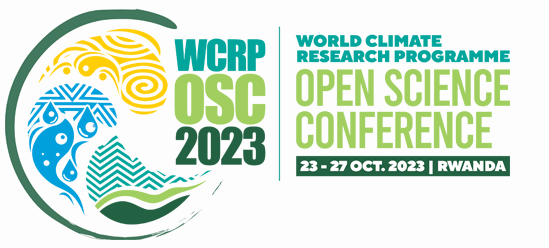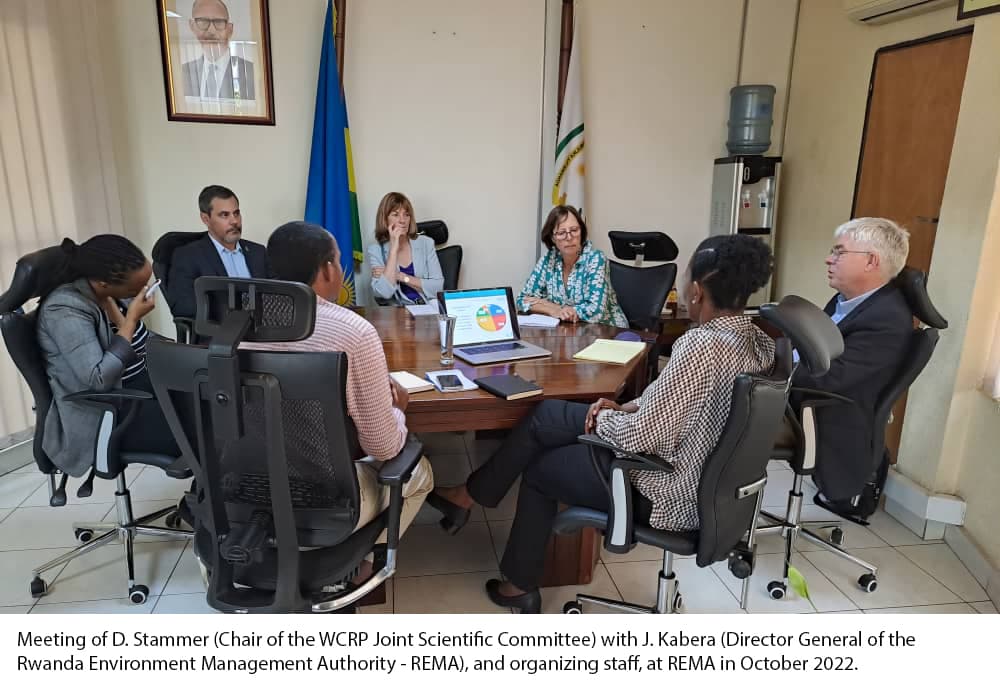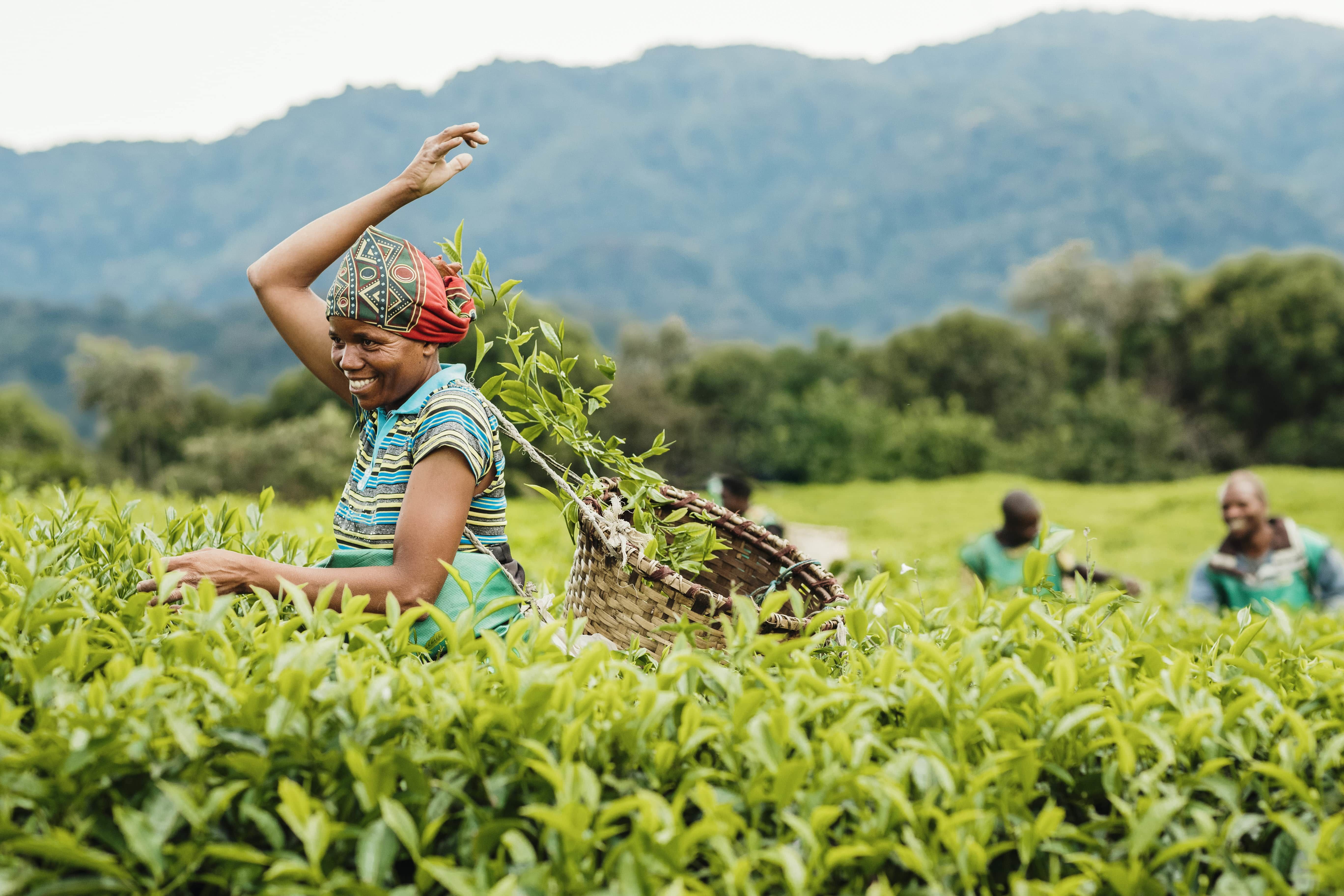The World Climate Research Programme (WCRP) Open Science Conference (OSC) will take place in Rwanda in 2023. It is planned as a hybrid (in-person and online) conference that will bring together some of the brightest minds in climate science and related areas to showcase recent and significant advances in climate research, identify gaps and opportunities, and jointly develop plans toward a sustainable future.
WCRP leads the way in improving our understanding of multi-scale dynamic interactions between natural and social systems in order to better understand Earth’s climate and provide robust climate information to society. Among its goals are to bridge gaps and build bridges between science and society. But how complex is this task? Climate change is already having natural, social, economic, political, and migratory consequences in many communities and will increasingly jeopardize human and ecosystem well-being. Sound knowledge of climate science must underpin our response, both in terms of adaptation and mitigation efforts.
 The WCRP OSC occurs approximately every decade and takes years to plan. This is the first time that the conference will be held in a hybrid format, which has increased the level of complexity for the organization of the event. It is estimated that a large number of attendees (around 1,500 people) will travel to Kigali, the capital of Rwanda, while a similar number will attend remotely from around the globe.
The WCRP OSC occurs approximately every decade and takes years to plan. This is the first time that the conference will be held in a hybrid format, which has increased the level of complexity for the organization of the event. It is estimated that a large number of attendees (around 1,500 people) will travel to Kigali, the capital of Rwanda, while a similar number will attend remotely from around the globe.
The WCRP OSC would not be possible without the conference hosts and sponsors. The WCRP OSC thankThe OSC Science Organizing Committee and a small support team are working very hard to ensure that conference attendees have a great experience, regardless of whether they attend in person or online. However, those who can attend in person are encouraged to do so to ensure that the climate science community has maximum opportunities to build new bridges with the research community in Rwanda and in Africa as a whole.
 The WCRP OSC would not be possible without the conference hosts and sponsors. The WCRP OSC thanks the Rwanda Environmental Management Authority (REMA) for hosting the conference and the African Institute of Mathematical Science in Rwanda (AIMS) for hosting the associated Early- to Mid-Career Researcher (EMCR) Symposium. Many sponsors from around the world have joined the effort, such as the US National Aeronautics and Space Administration (NASA), the US National Oceanic and Atmospheric Administration (NOAA), the European Space Agency (ESA), Institute Pierre Simon Laplace, Mercator Ocean International, University Corporation for Atmospheric Research (UCAR), European Organization for the Exploitation of Meteorological Satellites (EUMETSAT), and the Scientific Committee of Oceanic Research (SCOR). We thank all the sponsors for their contributions to making the conference a success and invite other organizations to help us to make this a successful event. To date, we have secured around 40% of the funding to deliver a fully hybrid conference, with free online access for delegates from low and lower-middle income countries and travel support to bring the next generation of climate scientists from around the world to Kigali. We need broad support to make this happen.
The WCRP OSC would not be possible without the conference hosts and sponsors. The WCRP OSC thanks the Rwanda Environmental Management Authority (REMA) for hosting the conference and the African Institute of Mathematical Science in Rwanda (AIMS) for hosting the associated Early- to Mid-Career Researcher (EMCR) Symposium. Many sponsors from around the world have joined the effort, such as the US National Aeronautics and Space Administration (NASA), the US National Oceanic and Atmospheric Administration (NOAA), the European Space Agency (ESA), Institute Pierre Simon Laplace, Mercator Ocean International, University Corporation for Atmospheric Research (UCAR), European Organization for the Exploitation of Meteorological Satellites (EUMETSAT), and the Scientific Committee of Oceanic Research (SCOR). We thank all the sponsors for their contributions to making the conference a success and invite other organizations to help us to make this a successful event. To date, we have secured around 40% of the funding to deliver a fully hybrid conference, with free online access for delegates from low and lower-middle income countries and travel support to bring the next generation of climate scientists from around the world to Kigali. We need broad support to make this happen.

At the previous WCRP OSC, which was held in Denver in 2011, it was concluded that WCRP should not only provide the understanding and prediction of the Earth's climate system, but also work with partners to translate this knowledge into practical solutions. The WCRP OSC 2023 will showcase how far we have come. The conference will have three themes and, for the first time, will not focus solely on physical climate science. The first theme will address ‘advances in climate research,’ the second theme will explain ‘human interactions with climate,’ and the third theme will develop proposals for generating ‘co-produced services and solutions.’ All information on themes, oral sessions, and poster clusters is available on the OSC website.
One of the most exciting and enriching aspects of this conference is the planned knowledge exchange between stakeholders in different sectors and career stages (politicians, graduate students, researchers, practitioners, etc.) This will facilitate collaborations that the WCRP OSC Science Organizing Committee hopes will prepare us for new ways of working in the years to come as we face challenges and look for opportunities in a changing climate. For EMCRs, special events are being planned to support networking and build collaborations. A dedicated EMCR Symposium will take place a day before and a day after the OSC on 22 and 28 October, and EMCRs will also have roles to play throughout the conference week, including participating in table topics (discussions) that will cover a wide range of thematic areas such as work-life balance, professional development, networking across generations, gender balance, the transition from ECR/MCR to senior scientist, etc. Limited funding will be available to support EMCR participation, with applications able to be submitted as part of the abstract submission process.
The WCRP OSC will promote research that explores ways to grow regional collaborations. An initiative called the WCRP Global Precipitation Experiment (GPEX) project exemplifies this by seeking to improve precipitation prediction at different temporal and spatial scales. As precipitation forecasting safeguards agriculture and many other sectors and helps alleviate major impacts from droughts and floods, this project will be of global interest and will be launched during the WCRP OSC. This is one of many initiatives seeking to improve scientific understanding of physical climate processes and human-climate interactions, build capacity in climate science, and connect scientific knowledge, planning, decision-making, and policy processes.
We look forward to exciting discussions throughout the WCRP OSC and hope that you will join us.
 Photograph by David Toovey.
Photograph by David Toovey.
